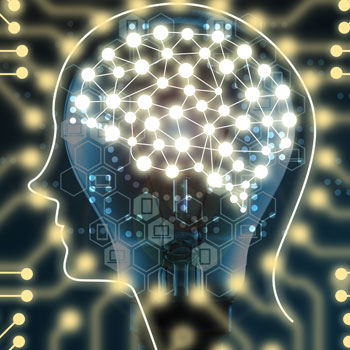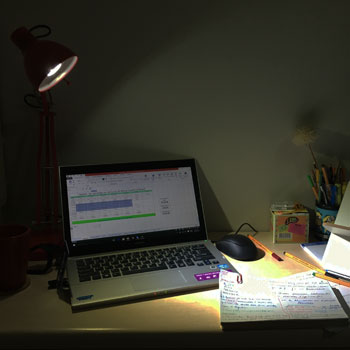People increasingly learn in different (physical and social) settings with less effort than 50 years ago, as both technological as well as physical infrastructures allow them to do so.
Learners easily move from one ‘place’ to another and create their own learning ‘places’, e.g. by using mobile devices and cloud-technology. Learners’ mobility and control on what, when, where (Chan et al., 2006) and how they want to learn is still increasing every day, allowing them to choose from a wide variety of formal (e.g. schools, universities) as well as non-formal (e.g. museums, ‘on the job’, MOOC’s) learning experiences.
Seamless Learning (Wong, Milrad, & Specht, 2015) looks at the ‘gaps’ that currently exist between these varied learning settings and how learning across these different settings can be fostered by making transitions as smooth as possible (Looi et al., 2010) with innovative technology and pedagogy, in order to make learning more meaningful, transferable, effective, continuous and fun for learners.
Background
Learning happens not only in ‘formal’ settings, like schools, but in every setting in which people are engaged and active and that affords new experiences and opportunities for metacognition (Kim, Hung, Jamaludin & Lim, 2014). Learners create new mental models and learn new skills, framed by the setting they are interacting with, thus actively providing meaning and contextualizing their experiences (Dourish, 2004; Westera, 2011).
Currently, the learning settings a learner moves through are still ‘separated’ in many ways, thus not supporting the formation of “connections” and the construction of an “overarching context” between these different learning experiences. For example, learners do not see and do not make connections between the nature field trip about plants they had with scouting in the weekend (non-formal learning) and the biology classes they attend at school (formal learning).
Looking within formal education, we see additional ‘gaps’, as different topic domains are still often learned separately and without learners knowing how this knowledge can be integrated, applied and useful in the ‘real world’. Additionally, complex (21st century), interdisciplinary (transversal) skills, such as creativity, problems solving, collaboration, information literacy and (intercultural) communication, are needed in many jobs today and in the future, but are mostly not taught in school.
The topic “Seamless learning” looks into how we can bridge these gaps and phase out the boundaries between the different learning settings in a “learner’s” mind by facilitating the construction of connections between them through designed (technological and pedagogical) affordances and learning scenario’s. A learner should than experience a continuity of learning and consciously bridge the multifaceted learning efforts, across a combination of locations, times, technologies and social settings” (Sharples et al., 2012, p.24).
Our research is grounded in educational theories like Situated cognition (Brown, Collins, & Duguid, 1989), Experiential learning (Kolb, 1984), Anchored instruction (Bransford, Sherwood, Hasselbring, Kinzer & Williams, 1990), Cognitive apprenticeship (Collins, Brown & Newman, 1988) and Self-determination theory (Deci & Ryan, 2000) and makes use of pedagogical strategies like Storytelling, Expert modeling, Inquiry-based-, Play-based-, Collaborative-and networked-, Problem-based-, project based-, design based- and competence based-learning.
We work at a national and international level with schools, foundations (e.g. umbrella organizations, musea), business, government and universities and within the context of various research schools (SIKS, ICO) and relevant associations. We have applied ‘seamless’ concepts in various domains, such as STEAM (Science Technology Engineering Art & Design and Math) (Rusman, Firssova, Janssen & Specht, 2015), Logistics (Klemke, Ternier, Kalz, Schmitz, & Specht, 2014; Klemke, Kurapati, Lukosch, & Specht, 2015a; Klemke, Kurapati, Lukosch, & Specht, 2015b) and Language Learning (Rusman, Ternier & Sassen, 2013).
Our main research question is:
- How can we, by (technological and pedagogical) design and facilitate a seamless learning process of learners learning in various settings, so that learning becomes more meaningful, transferable, effective (e.g. in terms of retention, decrease of inert knowledge), continuous and fun for learners?
Sub-questions are:
- How can we connect different learning settings in which educators, edutainers (e.g. musea) and learners are active?
- How can we benefit from understanding the relation between contextualization and learning processes for the design of (technology-enhanced) effective, efficient and enjoyable learning scenarios across contexts?
- Which services are effective to increase a sense of agency and self-efficacy of learners regarding their learning process?
People
Projects
Projects (current):
- WEKIT (Wearable Experience for Knowledge Intensive Training) is a Horizon 2020 project investigating and developing innovative solutions for workplace training, based on Augmented Reality (AR) and Wearable Technology (WT).
- Viewbrics (“Formative assessment of complex skills with video-enhanced rubrics”) is a 3 year research project funded by the Dutch National Research Council (NWO/NRO) to study the effect of rubrics with video modelling examples on the quality of formative feedback and mental model formation while practicing three complex skills (collaboration, information literacy and presentation skills) and on final mastery of these skills. A digital 360-degree feedback instrument for mobile devices is developed.
- ELITe (“Enhancing Learning In Teaching via e-inquiries”)
The ELITe project aims at promoting inquiry learning via the use of a digital inquiry learning toolkit by teachers and future teachers, including in-service teacher educators in the STEM domain, in their professional learning activities. A training will be developed and implemented in four participant countries with a target population of 200 participants. - WinAPP: "Work process oriented, INteractively enhanced and APP supported learning and training in construction VET in Europe”.
- PhD projects:
Mobile Seamless Learning Support in Inquiry-Based Learning (Angel Suarez). - Agile Learning: Developing an educational framework based on the principles of agile (Guido van Dijk).
Projects (past):
- Educational games for field trips and situated learning: ELENA
Early e-Learning of Neighbouring Languages - OBA mediawijsheid project
(Openbare Bibliotheek Amsterdam, mediawijsheid project) - Educational games for shared and collaborative learning: SALOMO
Situational Awareness for LOgistic Multimodal Operations - UNHCR:
United Nations High Commissioner for Refugees pilot/ hostage taking simulation
Mobile inquiry-based learning and STEAM education:
- weSPOT
Working Environment with Social and Personal Open Tools for inquiry based learning. - STEAM teacher professionalization and resources:
Inspiring Science Education - Innovative teacher professionalization and resources:
Open Discovery Space
Conference and publications
Seamless learning conference
Wat is seamless learning? Wat kun je ermee? Zijn er al voorbeelden van en zo ja, welke? Deze vragen kwamen aan bod op de Seamless learning conference op 8 juni 2018 in Maastricht.
Presentaties:
Keynotes:
Introductie "Seamless Learning - Technology-enhanced learning from practical experiences across contexts"
door Ellen Rusman, Welten-instituut, Open Universiteit
Keynote "Innovation and Sustainability in Mobile Seamless Learning: Current Perspectives and Challenges"
door Marcelo Milrad, Linnaeus University, Sweden (presentatie downloaden)
Keynote "Seven times Seamless Learning in Higher Education - first conceptual and empirical insights"
door Christian Rapp, Zurich University of Applied Sciences, Zwitserland en Luci Gommers, St. Gallen University, Zwitserland
Inspiratiesessie "Een rijke (leer)omgeving"
door Dorien Wijstma, Landschap Erfgoed Utrecht
Digitale instrumenten en tools:
"Professionele persoonlijke ontwikkeling"
door Jeroen Storm, Welten-instituut, Open Universiteit
"Viewbrics - de kunst van het 'afkijken': Vakoverstijgende vaardigheden aanleren met video-verrijkte rubrieken"
door Ellen Rusman, Welten-instituut, Open Universiteit
"ARLearn - a framework for creating mobile serious games"
door Stefaan Ternier, Welten-instituut, Open Universiteit
"Dojo IBL - 5W + 1H" door Olga Firssova, Open Universiteit
Opnames van de keynotes
Key publications:
- Rusman, E., Nadolski, R., Boon, J. & Ackermans, K. (accepted). Viewbrics: Formative Assessment of Complex Skills with Video-Enhanced Rubrics in Dutch Secondary Education.
- Ackermans, K., Rusman, E., Brand-Gruwel, S., & Specht, M. (accepted). A First Step Towards Synthesizing Rubrics and Video for the Formative Assessment of Complex Skills.
- Bidarra, J., & Rusman, E. (submitted). A Pedagogical Model for Science Education: Bridging Formal and Informal Learning Contexts Through a Blended Learning Approach.
- Wong, L. H., Milrad, M., & Specht, M. (2015). Seamless Learning in the Age of Mobile Connectivity. (L.-H. Wong, M. Milrad, & M. Specht, Eds.), Seamless Learning in the Age of Mobile Connectivity. Singapore: Springer Singapore.http://doi.org/10.1007/978-981-287-113-8
- Rusman, E., Firssova, O., Janssen, T. & Specht, M. (2015). An integrated approach to inquiry based science learning in a secondary school: designing a colony on Mars. In: Proceedings of 9th International Technology, Education and Development Conference, 2-4 March, 2015. Madrid, Spain. pp. 4483-4492.
- Klemke, R., Kurapati, S., Lukosch, H., & Specht, M. (2015a). Transferring an educational board game to a multi-user mobile learning game to increase shared situational awareness. In P. Zaphiris, & A. Ioannou (Eds.), Learning and Collaboration Technologies. Proceedings of the Second International Conference, LCT 2015 (pp. 583-594). Held as Part of HCI International 2015, Los Angeles, CA, USA, August 2-7, 2015, Lecture Notes in Computer Science 9192. Springer International Publishing. http://dx.doi.org/10.1007/978-3-319-20609-7
- Klemke, R., Kurapati, S., Lukosch, H., & Specht, M. (2015b). Lessons learned from creating a mobile version of an educational board game to increase situational awareness. In G. Conole, T. Klobučar, C. Rensing, J. Konert, & E. Lavoué (Eds.), Learning and Collaboration Technologies. Design for Teaching and Learning in a Networked World, Proceedings of the 10th European Conference on Technology Enhanced Learning, EC-TEL 2015, Lecture Notes in Computer Science 9307 (pp. 183-196). Toledo, Spain: Springer International Publishing. http://dx.doi.org/10.1007/978-3-319-24258-3
- Firssova, O., Kalz, M., Borner, D., Prinsen, F., Rusman, E., Ternier, S., & Specht, M. (2014). Mobile inquiry-based learning with sensor data in the school: Effects on student motivation. In C. Rensing et al (Eds.), Proceedings of the 9th European conference on Technology Enhanced Learning - EC-TEL 2014: Open Learning and Teaching in Educational Communities, LNCS 8719 (pp. 112-124). Graz, Austria.
- Kalz, M., Firssova, O., Börner, D., Ternier, S., Prinsen, F., Rusman, E., Drachsler, H., & Specht, M. (2014, 7-9 July). Mobile inquiry-based learning for sustainability education in secondary schools. Effects on knowledge and motivation. In D. Sampson, & M. Spector (Eds.), Proceedings of the 14th IEEE International Conference on Advanced Learning Technologies (ICALT 2014) “Advanced Technologies for Supporting Open Access to Formal and Informal Learning” (pp. 644-646). Athens, Greece. IEEE: Los Alamitos (USA). doi: 10.1109/ICALT.2014.189.
- Rusman, E., Martínez-Monés, A., Boon, J., Rodríguez-Triana, M.J., & Villagrá-Sobrino, S. (2014, 30 June-1 July). Gauging Teachers’ Needs with Regard to Technology-Enhanced Formative Assessment (TEFA) of 21st Century Skills in the Classroom. In M. Kalz, & E. Ras (Eds.), Computer Assisted Assessment. Research into E-Assessment. Proceedings of the International Computer Assisted Assessment (CAA) in Conference Communications in Computer and Information Science Proceedings 439 (pp.1-14). Zeist, The Netherlands: Springer.
- Klemke, R., Ternier, S., Kalz, M., Schmitz, B., & Specht, M. (2014). Immersive Multi-user Decision Training Games with AR-Learn. In C. Rensing, S. de Freitas, T. Ley, & P. Muñoz-Merino (Eds.), Open Learning and Teaching in Educational Communities. Proceedings of the 9th European Conference on Technology Enhanced Learning (EC-TEL), Lecture Notes in Computer Science 8719 (pp. 207-220). Graz, Austria: Springer International Publishing. http://dx.doi.org/10.1007/978-3-319-11200-8_16 Please see also: http://dspace.ou.nl/handle/1820/5538
- Rusman, E., Ternier, S., & Sassen, D. (2013). ‘ELENA goes mobile’: a mobile assisted early language learning pilot for familiarizing children with neighbouring languages. In Pixel (Ed.), Proceedings of ICT for Language Learning, Conference Proceedings 2013, 6th Conference edition (pp. xx-xx). November, 14-15, 2013, Florence, Italy: Libreriauniversitaria.it Edizioni.




